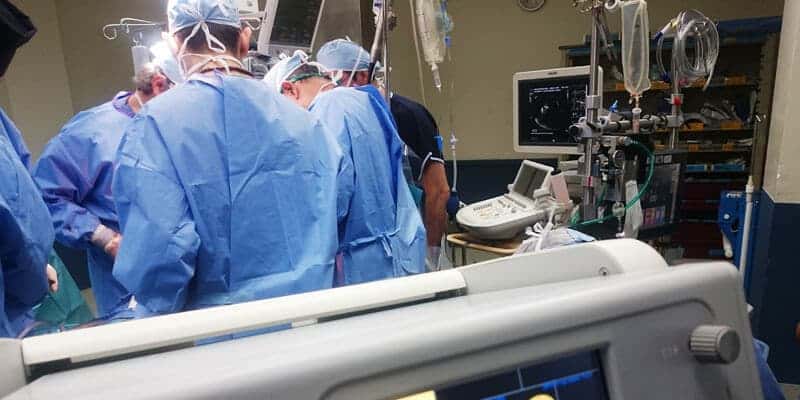Misdiagnosis in the ER Leads to Necrotizing Soft Tissue Infection and Amputation
This case study examines the unfortunate incident of a 40-year-old female patient with Cushing's disease and diabetes mellitus who developed necrotizing soft tissue infection following a misdiagnosis in the ER.
Case Overview
This case revolves around a 40-year-old female patient with a medical history of Cushing's disease (secondary to pituitary adenomectomy) and diabetes mellitus.
After experiencing pain and swelling in her right ankle following a hike, she sought help at the emergency room. Despite being tachycardic and having an elevated white blood cell count, she was diagnosed with right lateral malleolar bursitis and discharged.
A subsequent telemedicine consultation led to a diagnosis of gouty arthritis, for which prednisone was prescribed. However, the patient's condition worsened, leading to another ER visit three days after her initial visit, where she was admitted and given antibiotics.
An MRI revealed abscesses, prompting surgical consultation for incision and drainage. She was later transferred to a higher-level care hospital, where necrotizing fasciitis was diagnosed, necessitating a below-knee amputation (BKA).
This case seeks expert review from a surgeon regarding causation related to the necrotizing soft tissue infection.
Questions to the General Surgery expert and their responses
How frequently do you manage patients with necrotizing soft tissue infections?
As a general surgeon with 16 years of practice in minimally invasive surgery, I frequently take emergency department calls and have performed hundreds of evaluations for necrotizing soft tissue infections.
What measures should be taken to prevent a soft tissue infection from progressing to necrotizing fasciitis?
Early diagnosis is crucial in preventing the progression of soft tissue infections to necrotizing fasciitis, or what we now refer to as necrotizing soft tissue infection (NSTI).
Key aspects include thorough laboratory tests, calculating a Laboratory Risk Indicator for Necrotizing Fasciitis (LRINEC) score, and obtaining proper imaging beyond just simple X-rays.
Have you ever reviewed a similar case? If yes, please elaborate.
I have encountered severe lower leg infections in my practice; however, in every case, we managed without resorting to amputation.
About the expert
This expert is a highly experienced general surgeon with over 15 years in the field, specializing in minimally invasive surgery. They are board-certified and hold memberships in prestigious professional organizations such as the Society of American Gastrointestinal Endoscopic Surgeons and the American College of Surgeons. Currently, they serve as a clinical assistant professor at a prominent medical school, director of general surgery resident endoscopy at a hospital, and president of minimally invasive and gastrointestinal surgery at a surgical practice.

E-366389
Specialties:
About the author
Find an expert witness near you
What State is your case in?
Subscribe to our newsletter
Join our newsletter to stay up to date on legal news, insights and product updates from Expert Institute.



